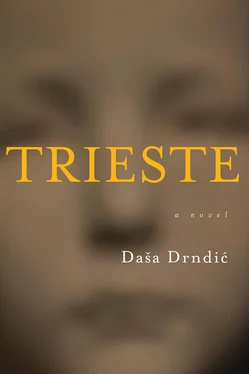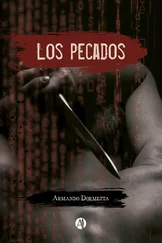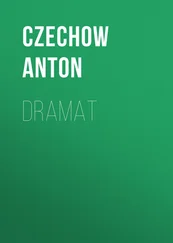If he were alive, Haya’s grandfather Bruno Baar would probably have told her which of the Gorizia newspapers he read, what papers piled up in the house, which ones Marisa used to wash the windows or to wrap what was left of her set of drinking glasses as they got ready to evacuate the city, back in 1917. And Ada would be able to tell her, tell Haya, which magazines and newspapers she had sold at her tobacco shop before they left Trieste, before fascism dropped the curtain behind which it tapped out the first steps of its diabolic dance, still tentative at that point and with no musical accompaniment, the audience mostly sitting in the theatre and waiting (and finally watching) the beginning of the dramatic second act. But Haya did not ask, Haya does not ask, and Ada soon forgets not only her own life, but life in general.
Before the Great War they read Gaberšček’s Soča and Primorec in Gorizia and Trieste. There is a political paper called Gorica, and Primorski Gospodar, and weeklies such as Novi Šas and Goriški List, and were she to poke around her grandfather Bruno’s now abandoned wine cellar, Haya would find old issues of the monthly Cvetje among the dry barrels, with essays by Škrabec, the Franciscan monk, on the Slovenian language. She would find dusty bottles draped with sheets of paper from Naši Zapiski and Veda, crumpled vestiges, traces of a time that was only just birthing, as if that time were a premature infant which the war was compelling to rest, swaddled, waiting. And now here is another war, the campaigns follow one upon another like the seasons; the commands from invisible powers spurt in brief, sluggish sprays and well-worn history flows like lava down the streets and squares, seeping into rooms and turning people to stone. Like Trieste, Gorizia lives its maddened parallel lives again, careening along railway lines from which the rails have been stripped. In it, in that accursed blot on the three-way border, at the intersection of four languages and invisible pasts, carelessly buried, dispersed or swept aside like squandered alluvia, only occasionally does ordinary life gleam forth, like a flash from the sky that sticks to the windowpane and on it, dies.

The underground press printed illegally by the partisans is not, of course, delivered to Haya’s tobacco shop, so as far as Haya is concerned that sort of press, anti-fascist, focused on national liberation, in Slovenian, Croatian and Italian, does not exist. Had she by chance stumbled upon papers such as those, she would have learned that the German Army was suffering losses, that the German generals were gradually losing their patience, and becoming more strict and brutal. She would have learned all sorts of things. She would have read about horrors, and her civilian life might have stepped out of the ordinary, or maybe not. In any case, for Haya the only newspapers are the official press, the papers read by the German soldiers and the Italian soldiers, and the other honest folk who don’t ask about things that aren’t their business. Nevertheless, throughout the Adriatisches Küstenland, all through the war, newspapers circulate, song books, dictionaries, children’s picture books, poetry and prose, cranked out on Cyclostyle machines in secret , in homes, warehouses, bakeries, carpentry workshops, are distributed despite the life-threatening danger to all those who know of them and want to know. Slovenski Poročevalec, Zakaj je Propadala Jugoslavija, Morje, Snežnik, Ljudska Pravica, Mladi Puntar, Mladina, Mladi Rod, Il Nostro Avvenire, Bollettino, Naša žena, Il Lavoratore, Otroške Pesmi, a whole library of another reality that always exists, everywhere, at every age and time.
Sometimes there is no running water in town, and sometimes the electricity goes out, but good Lord, things like that happen in peacetime, too. Haya’s Aunt Letizia says that in October the previous year (in 1943, right?) she happened to be near the Casa di Cura Villa San Giusto and she saw the Germans firing at the train station, for no particular reason, as if they were having a bit of a lark, and she saw the large clock topple off the front of the building, and time simply stood still , and time dies anyway during a war , she says. The heart of time beats in secret, she says. Time isn’t going anywhere, she says, so they don’t need that clock up on the railway station building anyway. She says that she kept walking along the Corso and happened upon two Italian armoured vehicles that were shooting left and right, like crazy, Letizia says, though there was practically no-one out on the street, only me with my five fresh eggs, she says, and she saw another woman, over there by the Parco della Rimembranza , and how the woman did not have time to run into the nearest entranceway, because they shot her. Letizia’s husband Parigi Puhaz says that on 22 September (he remembers exactly when) a shell hit the Braunizer house on Piazza Vittoria, and the next day one hit the Vittoria cinema. Four people were wounded, he remembers that precisely. Four. Then he says, You, Haya, you don’t have to see every single show . After that short conversation Haya’s uncle Parigi Puhaz goes to Vienna, where he dies in a flower shop in 1945, no-one ever finds out how. Florian listens to these and many of the other little stories that find their way into the dining room of the Baar family home, where the Puhaz family and the Tedeschi family are now living. He listens to these stories, these tales, fabrications which take a seat, uninvited, at their table, while they eat their rationed meals, more often than not in silence.
Haya’s brother Orestes, who turns ten in 1944, goes out with his pals and collects bits of shrapnel on the streets and in the parks, and already has an enviable collection of metal fragments, the exemplars of which he trades and hoards on a shelf in the kitchen in the large apothecary jar, the same jar in which Marisa used to keep her flour, but this shrapnel has nothing to do with what is real, these are just children’s games, reason the members of the household.
In February 1944 Haya goes to see Mrs Donati, who sells “exclusive” caps and hats, cappelli di lusso, at Grosso Valtz & Co., her fashion salon at Via Garibaldi 5, because Haya would like to replace her black knitted cap with a little blue hat, or maybe even a red one. There she runs into two ladies who are whispering while she tries on the hats in front of a mirror, and she overhears what they are saying, she can’t help it. The older woman says that Rina Luzzatto, a teacher, has been forced, meaning prematurely, into retirement, which immediately reminds Haya of her school in Naples, but heavens, after all the times are grim, and she hears how maestra Luzzatto is in un stato deplorevolissimo, because nearly all the Jews of Gorizia, or so says maestra Luzzatto, including her brother and some others from nearby towns, are arrested at first, because there are suspicions they are in league with the partisans, and then, on that terrible night of 23 November, 1943, they are thrown into cattle wagons headed for Auschwitz.
In February 1944 Haya has no idea about the terrible night of 23 November, 1943, because at that point she was not in Gorizia. Afterwards, while the war goes on, Gorizia shrinks, because of nights like that, turns into a tiny ball wrapped in a membrane of silence, and then oblivion settles over it like sodden snow.
But Haya remembers 18 March, 1944.
What does she remember?
Читать дальше













